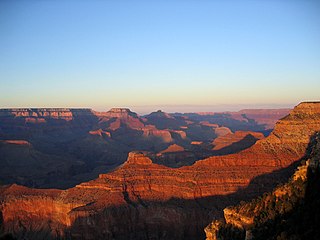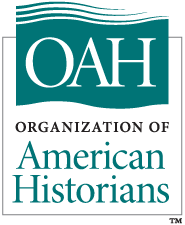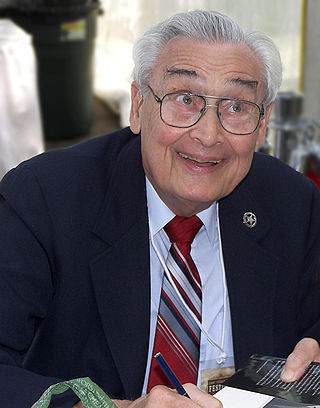Related Research Articles

The Western United States, also called the American West, the Western States, the Far West, the Western territories, and the West, is the region comprising the westernmost U.S. states. As American settlement in the U.S. expanded westward, the meaning of the term the West changed. Before around 1800, the crest of the Appalachian Mountains was seen as the western frontier. The frontier moved westward and eventually the lands west of the Mississippi River were considered the West.

The University of Nebraska Omaha (UNO) is a public research university in Omaha, Nebraska, United States. Founded in 1908 by faculty from the Omaha Presbyterian Theological Seminary as a private non-sectarian college, the university was originally known as the University of Omaha. Originally meant to provide a Christian-based education free from ecclesiastical control, the university served as a strong alternative to the city's many successful religiously-affiliated institutions.

Wright Marion Morris was an American novelist, photographer, and essayist. He is known for his portrayals of the people and artifacts of the Great Plains in words and pictures, as well as for experimenting with narrative forms.

Omaha Central High School, originally known as Omaha High School, is a fully accredited public high school located in downtown Omaha, Nebraska, United States. It is one of many public high schools located in Omaha. As of the 2015–16 academic year, Omaha Central had an enrollment of 2,552 students.

The Organization of American Historians (OAH), formerly known as the Mississippi Valley Historical Association, is the largest professional society dedicated to the teaching and study of American history. OAH's members in the U.S. and abroad include college and university professors; historians, students; precollegiate teachers; archivists, museum curators, and other public historians; and a variety of scholars employed in government and the private sector. The OAH publishes the Journal of American History. Among its various programs, OAH conducts an annual conference each spring, and has a robust speaker bureau—the OAH Distinguished Lectureship Program.
Technical High School (Tech) was a public high school that was located at 3215 Cuming Street in Omaha, Nebraska, United States. Opened in 1923, it was said to be the largest high school west of Chicago and the largest in the Omaha area before it was closed in 1984. Today the building serves as the headquarters of Omaha Public Schools.

Mexicans in Omaha are people living in Omaha, Nebraska, United States who have citizenship or ancestral connections to the country Mexico. They have contributed to the economic, social and cultural well-being of Omaha for more than a century. Mexicans, or Latino people identified incorrectly as being from Mexico, have been accounted for in the history of Omaha, Nebraska since 1900. The entire Latino population of Omaha increased ninety percent between 1990 and 1997.

Robert Marshall Utley was an American author and historian who wrote sixteen books on the history of the American West. He was a chief historian for the National Park Service.
William Grant Bagley was a historian specializing in the history of the Western United States and the American Old West. Bagley wrote about the fur trade, overland emigration, American Indians, military history, frontier violence, railroads, mining, and Utah and the Mormons.
Ted Genoways is an American journalist and author. He is a contributing writer at Mother Jones and The New Republic, and an editor-at-large at Pacific Standard. His books include This Blessed Earth and The Chain: Farm, Factory, and the Fate of Our Food.
The Journal of the Southwest is a quarterly peer-reviewed academic journal published quarterly by the Southwest Center, at the University of Arizona, with a focus on the American Southwest and adjacent northwestern Mexico. The journal publishes scholarly research papers and reviews from across a range of academic fields in the humanities, including anthropology, folklore, literary studies, historiography, socio-political studies and aspects of the region's natural history.

Ned Blackhawk is an enrolled member of the Te-Moak tribe of the Western Shoshone and a historian currently on the faculty of Yale University. In 2007 he received the Frederick Jackson Turner Award for his first major book, Violence Over the Land: Indians and Empire in the Early American West (2006) which also received the Robert M. Utley Prize in 2007.
Ray Allen Billington was an American historian who researched the history of the American frontier and the American West, becoming one of the leading defenders of Frederick Jackson Turner's "Frontier Thesis" from the 1950s to the 1970s, expanding the field of the history of the American West. He was a co-founder of the Western History Association in 1961.
The World History Association Bentley Book Prize is an annual award given by the World History Association. It was first awarded in 1999 as the World History Association Book Prize; the name was changed in 2012 to honor Jerry H. Bentley. The prize is $500.
The World History Association (WHA) is an academic association that promotes the study of world history through the encouragement of research, teaching, and publication. It was founded in 1982.
The 2005 CCHA Men's Ice Hockey Tournament was the 34th CCHA Men's Ice Hockey Tournament. It was played between March 11 and March 19, 2005. Opening round games were played at campus sites, while all "super six" games were played at Joe Louis Arena in Detroit, Michigan. By winning the tournament, Michigan won the Mason Cup and received the Central Collegiate Hockey Association's automatic bid to the 2005 NCAA Division I Men's Ice Hockey Tournament.
The 2001 CCHA Men's Ice Hockey Tournament was the 30th CCHA Men's Ice Hockey Tournament. It was played between March 8 and March 17, 2001. First round and play-in games were played at campus sites, while all 'final four' games were played at Joe Louis Arena in Detroit, Michigan. By winning the tournament, Michigan State won the inaugural Mason Cup and received the Central Collegiate Hockey Association's automatic bid to the 2001 NCAA Division I Men's Ice Hockey Tournament.

Anne Farrar Hyde is an American historian, author, and professor, specializing in the U.S. West and comparative North American history. Hyde wrote award-winning books such as Empires, Nations, and Families: A History of the North American West, 1800–1860 and An American Vision: Far Western Landscape and National Culture, 1820–1920. Her most recent book, Born of Lakes and Plains: Mixed Descent Families and the Making of the American West, 2021, is published by W. W. Norton.
John Alexander Carroll was an American academic between the 1950s to 1980s. During this time period, he primarily worked for the University of Arizona and Troy State University. While with Arizona, Carroll created Arizona and the West in 1959. He remained as the journal's editor until 1963.

Monica Muñoz Martinez is a scholar of Mexican-American history current serving as an Associate Professor of History at the University of Texas at Austin. Martinez was previously the Stanley J. Bernstein Assistant Professor of American Studies and Ethnic Studies at Brown University and an Andrew Carnegie Fellow. Her research has been supported by the Andrew W. Mellon Foundation, the Woodrow Wilson National Fellowship Foundation, and the Texas State Historical Association. She has received praise for her work on several public history projects and her first book, The Injustice Never Leaves You: Anti-Mexican Violence in Texas was published in 2018 and received numerous awards. In 2021 she received a "Genius Grant" from the MacArthur Foundation.
References
- ↑ "About the WHA". The Western History Association. Retrieved January 3, 2018.
- ↑ "Department of History". University of Alaska Fairbanks . Archived from the original on June 29, 2017. Retrieved 28 August 2014.
- ↑ "Contact Us: WHA Office & Staff". The Western History Association. Retrieved January 3, 2018.
- ↑ "Office". www.westernhistory.org. Retrieved 2024-08-02.
- ↑ "The American West: Magazine of the Western History Association, Volumes 1–14 by Mortensen, A.R., Ed., United States Buckram". Dickson Street Bookshop. AbeBooks. Archived from the original on September 24, 2016. Retrieved September 25, 2016.
- ↑ "Robert M. Utley Award". The Western History Association. Retrieved January 2, 2018.
- ↑ "Western History Association – Awards". www.westernhistory.org. Omaha, Nebraska. Retrieved 2023-07-02.
- ↑ "Western History Association Autry Public History Award". www.westernhistory.org. Omaha, Nebraska. Retrieved 2023-07-02.
- ↑ "About | Western Historical Quarterly | Oxford Academic". academic.oup.com. Retrieved 2018-12-16.